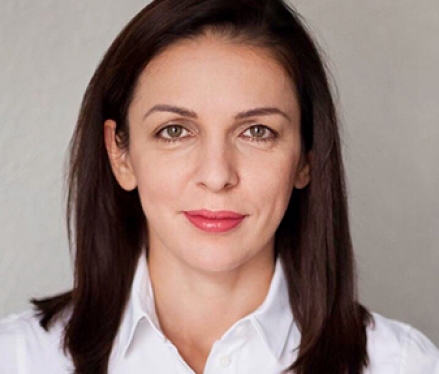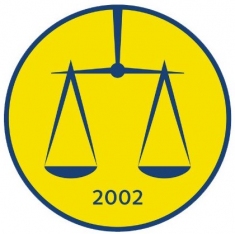Course: Foreign Economic Contract (8 lectures, 16 hours)
Lecture 1. General introduction
Acquaintance and general information about the course. What is a foreign trade contract and why is it needed? Contract as the key to resolving disputes. The role of the lawyer in drawing up contracts. Checking the counterparty before concluding a contract: where to get information about the counterparty? Checking bans / restrictions on imports / exports of goods.
Lecture 2. Form, structure and subject of the contract
Form of contract. Legislative requirements for the form of the contract? When can you do with only invoices? The principle of freedom of contract and foreign trade contracts. The meaning of the Regulations on the form of foreign economic agreements (contracts). Is it necessary to use this Regulation? Correctly determine the subject of the contract and its essential terms. We share works and services.
Lecture 3. Delivery. Terms of delivery
What is Incoterms? Description and structure of Incoterms (2000 and 2010). Why is it necessary to apply? What regulates Incoterms? We separate "the moment of transfer of risks" and "the moment of transfer of the property right". How to choose your term Incoterms? What should be considered when distinguishing terms? How do the terms Incoterms relate to customs value?
Lecture 4. Cost and order of calculations
Currency and total contract value. Legislative restrictions on payment terms. From what moment are such terms counted? Liability for violations (subject to changes and the law "On Currency"). Mandatory sale of part of the proceeds and other restrictions of the NBU. Forms of calculations. What forms of calculation are used? Form of payment and risk of non-payment.
Lecture 5. Delivery. Product description
Description and product code according to UKT FEA. What is the UKT FEA code and what does it affect? Who, how and when determines the code? Examples when an incorrect product description prevents the completion of delivery. Requirements for product quality and documents confirming quality. Determining the order of acceptance-transfer in the contract. Procedure for resolving disputes over the quality of goods.
Lecture 5. Packaging and labeling. Accompanying documents.
Description of packaging and labeling in the contract. Packaging and customs value. Markings and royalties. Country of origin of goods. What documents prove the origin? Free trade agreements. Accompanying documents. Certification, confirmation of conformity. Acts of acceptance-transfer. Freight transport documents.
Lecture 6. Responsibility in the contract.
Responsibility measures. What is the responsibility for? Types and amounts of liability. Force majeure. What about force majeure? How to formulate provisions on force majeure in the contract? What documents confirm force majeure? Consequences of force majeure.
Lecture 7. Dispute resolution and applicable law
Choice of court. What are the options for choosing a court to resolve disputes? Advantages and disadvantages of each. Arbitration clauses. Choice of law. When can I choose the applicable law? What does the chosen law apply to? Some conflict rules from the law "On WFP".
Lecture 8. Signing and amending the contract
Preparation of the contract and coordination with the contractor. How to make changes to the draft contract? How to coordinate edits? Protocol of differences. Section "other conditions" in the contract. What not to forget to make in the contract? Copies. The predominant language. Changes and additions to the contract. In what form and how changes and additions are made. E-mail - part of the contract?
Course: Foreign Economic Calculations (3 lectures, 6 hours)
Lecture 1. Currency regulation
Innovations in the field of currency regulation in Ukraine. Deadlines for settlements in foreign currency. Currency control and financial monitoring in the calculations in the FEA.
Lecture 2. General methods of calculations in foreign economic activity
Cash and non-cash payments. Advance in cash or in kind. Payments for goods in the form of a commercial loan. Loan with immediate cash payment option. Deferred and deferred payment for the purchased goods.
Lecture 3. Forms of settlements in foreign economic activity
Bank transfer (including SWIFT, IBAN). Calculations using electronic means. Calculations using cryptocurrency. Documentary forms of payment (letters of credit, collection, promissory notes, checks, etc.)
Course: Taxes in foreign economic activity (6 lectures, 12 hours)
Lecture 1. Corporate income tax
Basic and additional elements of the legal mechanism of income tax. Taxation of profits from foreign economic activity. Tax jurisdiction. Related parties in tax law.
Lecture 2. Transfer taxation
The concept, content and principles of transfer pricing. Controlled operations. Comparison of commercial and financial terms of agreements. Methods of determining prices. Relatively uncontrolled prices. Price agreement. Reporting on controlled transactions. The procedure for receiving and processing reports by the supervisory authority. Price monitoring for controlled transactions. Grounds, terms and procedure for inspection. Drawing up an act on the results of verification of controlled transactions. Liability for violation of transfer pricing conditions.
Lecture 3. Personal income tax
Basic and additional elements of the legal mechanism of personal income tax. Features of taxation of income received outside the territory of Ukraine. Rules for determining the final beneficiary.
VAT
Basic and additional elements of the legal mechanism of value added tax. Features of taxation of transactions in the implementation of foreign economic activity.
Lecture 4. International rules in the field of taxation
The concept of international tax law. Tax sovereignty. Taxpayer and tax jurisdiction. Residents and non-residents. Criteria for residency of legal entities and individuals. International tax agreements. Standard contracts. Model conventions, International agreements of Ukraine on avoidance of double taxation. How do they work? Activities of the UN and the OECD on the formation of modern international tax law.
Lecture 5. BEPS (Base Erosion and Profit Shifting) Plan.
What is the BEPS plan and how is it related to tax reform in Ukraine? BEPS plan and tax optimization. 15 actions by which OECD members, as well as other states, can make significant progress in combating tax minimization at the transnational level. Ukraine's accession to BEPS and changes in the PC of Ukraine within the framework of the "anti-offshore campaign".
Lecture 6. Tax risks when concluding foreign economic contracts (VAT, TCU, repatriation tax)
Risks of VAT, TCU, repatriation tax (the essence of the risk and the time of occurrence). Analysis of the essential terms of the contract: the parties and the subject of the contract, the amount of the agreement, terms of delivery, determination of the beneficial owner of income / company. The impact of these conditions on the Ukrainian company. Tax risk management: management of the place of delivery, regulation of the amount of delivery of goods / services, change of the "subject of the contract", mixed contracts, change of the structure of the agreement, incl. change of the scheme of work with a non-resident. Analysis of cases (analysis of the contract for the supply of services / goods, import of services / goods).
Course: Customs regulation (5 lectures, 10 hours)
Lecture 1. Customs clearance of import, re-import
Modes of import and features of their application. Import investment. Preparation of documents for customs clearance. Customs declaration
Lecture 2. Definition of the product code and its documentary substantiation
Determination of customs value, methods, documentation, controversial issues. Customs consultations. Preliminary decisions on customs value. Determining the product code. Controversial points of classification. Code definition of technically complex and complete objects. Preliminary decisions on the product code. Calculation of customs duties. The structure of the customs tariff, the system of import duties. Proof of country of origin.
Lecture 3. Customs clearance of export, re-export
Export declaration. Export of samples for certification. Export of goods to the exhibition. Proof of origin of goods. Export VAT.
Lecture 4. Other customs regimes
Temporary import and temporary export. Customs warehouse and possibilities of its use. Duty-free trade regime. Processing in the customs territory and abroad.
Lecture 5. Procedures and formalities at customs, customs control
Customs clearance and intellectual property. Features of procedures by types of transport. Preliminary notifications and preliminary declarations. Customs inspections. Customs guarantees. Temporary storage warehouse.
Course: International Commercial Arbitration (4 lectures, 8 hours)
Lecture 1. International commercial arbitration as one of the ways of alternative dispute resolution.
General characteristics of international commercial arbitration. Legal regulation of international commercial arbitration. Principles of activity of the International Arbitration Court.
Lecture 2. Arbitration clause (agreement).
Arbitration clause (agreement) as a basic element of entering into arbitration. Types of arbitration clauses (agreements). Mandatory elements of validity of arbitration clauses (agreements).
Lecture 3. Proceedings in international commercial arbitration.
Subjects of the arbitration process. Evidence in international commercial arbitration. Arbitration costs. Initiation of a case in international commercial arbitration. Consideration of the case in international commercial arbitration. Decisions and other rulings of the arbitral tribunal.
Lecture 4. Appeals, recognition and enforcement of decisions of international commercial arbitration.
Subject and procedure for appealing decisions of international commercial arbitration courts: debatable issues. Subjects of appeal of the arbitration decision. Terms of appeal. Grounds and consequences of revocation of the arbitral award: controversial issues. Mechanism for recognition of arbitral awards of international commercial arbitration courts of other jurisdictions. Procedure for execution of decisions of the international commercial arbitration court.
Price: 12990 UAH
For students: 6990 UAH







